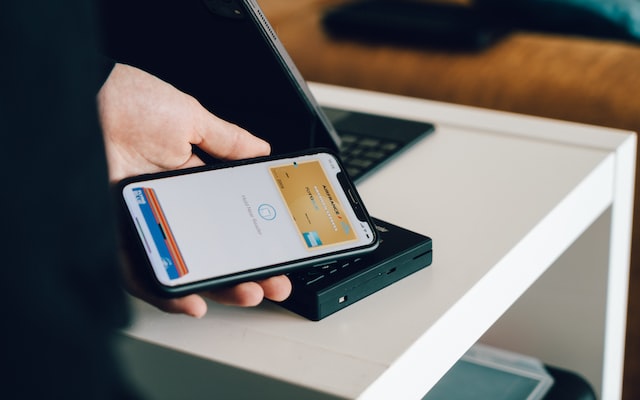If you are an investor who is looking forward to investing in cryptocurrency, it is significant that you must choose the right procedure. This begins with shortlisting the best trading platform, followed by storing the cryptos in the crypto wallet. Select a few wallets that provide its customers access to additional features, such as the ability to purchase and sell cryptocurrency or connect with decentralized applications (dapps). In addition, choosing the right crypto exchange platform is significant. You can start your trading journey with https://bitcoin-loophole.live/, a user-friendly and uncomplicated platform, making it an excellent choice for inexperienced investors and seasoned professionals.
In Defense of a Cryptocurrency Wallet
If you’re dealing with a sizable sum, you should get the bulk of it out of your exchange and into a crypto wallet, whether a hot or a cold wallet. This way, you may control your personal funds while still retaining your private keys.
Why do we need a digital currency wallet?
A wallet does not store your coins, as was previously indicated. Instead, it unlocks your currencies on public blockchain networks and keeps you from losing them. You’ll need a private key, which comes in a special code, to authenticate your address before you can conduct any transactions.
Multiple Wallet Options for Cryptocurrencies
Two major categories of cryptocurrency storage solutions exist “hot” wallets that are entirely digital and “cold” wallets that require physical access. In this article, we’ll go through the many cryptocurrency wallets available, so you can choose the one that works best for you.
What are Hot and Cold Wallets?
To protect the privacy of users, private keys in hot wallets are encrypted and saved within the app itself and is not available on the cloud. Using a hot wallet exposes you to potential harm since hackers and viruses can exploit security flaws in computer networks. Unlike hot wallets, cold wallets don’t need the internet and can be used offline.
Sceptical Spenders
You can also start with cold wallets. They’re not as hassle-free as hot wallets but safer for your money. Objects like paper or metal that have been etched are examples of physical mediums used for cold storage.
These cold wallets can take several forms, such as:
- Paper wallets
- Physical Wallets
Define “Hardware Wallet.”
To complete a transaction, you’ll need to physically press a button on the gadget, making it impossible for hackers to tamper with the signature. If you do not require immediate access to your bitcoin holdings, a cold wallet is the preferred method of safekeeping. However, it is important to remember that this leaves you solely responsible for the safety of your possessions.
What’s the Best Way to Store Money, a Hot Wallet or a Cold Wallet?
For day-to-day trading, when accessibility is key, a hot wallet is a good option; for keeping a large number of crypto assets, where security is prioritized over ease of use, a cold wallet might be preferable.
Wallets Under Custodial Control
- Custodial wallets are the most common type of online cryptocurrency storage. These wallets are widely available on cryptocurrency exchanges and are favoured by both novices and seasoned day traders because of their simplicity and convenience.
- Custodial wallets are distinct from the options above in that users give up custody of their tokens and rely on the exchange to store their private transaction signing keys.
- If users are to have faith in the service provider’s ability to safely store and guard against unauthorized access to their tokens. These safeguards include two-factor authentication, email verification, and biometric authentication methods like face or fingerprint scans. Some markets won’t let you execute trades unless you’ve completed these safety configurations.
- Most exchanges and custodial wallet providers go above and beyond when protecting their users’ tokens. For instance, some of the money may be moved to the firm’s cold wallet, which is not connected to the internet and protected from hackers.
Comparison of Exchanges and Wallets
When you keep your cryptocurrency in an exchange, it is held in a wallet that the exchange itself controls. When you use an exchange to transmit cryptocurrency to another user, you tell the exchange to send it from its wallet to the recipient’s wallet.
Having cryptocurrency stored in an exchange account is analogous to keeping money in a bank. There is always a threat of hackers breaching the system. Hence, it is advisable that one must use a crypto wallet for the same.
Conclusion
As such, you now know what a cryptocurrency wallet is, how it operates, and how to select the best wallet for your needs. Since the advent of the World Wide Web in the early 1990s, we have become accustomed to entrusting others with our possessions and power. But today, with the help of crypto wallets, we can take direct management of our assets, much like when we had cash, but with the added benefit of using the web. Picking a wallet is an entirely new experience for crypto novices. So, hopefully, you’ve been able to narrow down your alternatives with this information and the chart at the conclusion.




